These delicate creatures have captivated humans across time and space, making butterfly symbolism in different cultures one of the most fascinating subjects in cultural studies. From ancient civilizations to modern societies, butterflies continue to inspire and teach us valuable lessons about life, growth, and transformation.
When a butterfly floats past your window or lands gracefully on a nearby flower, it’s more than just a beautiful moment. These enchanting insects carry deep symbolic meaning across countless cultures and traditions. Throughout history, people have looked to butterflies as powerful symbols of transformation, hope, and renewal.
The significance of butterflies goes far beyond their stunning appearance. In exploring butterfly symbolism in different cultures, we discover how these remarkable creatures have shaped human understanding of personal growth, spirituality, and our connection with nature.
Their journey from caterpillar to butterfly through metamorphosis serves as a universal metaphor that resonates across cultural boundaries.
The Universal Symbolism of Butterflies
The widespread presence of butterfly symbolism in different cultures reveals fascinating patterns in human thought. These delicate insects have influenced art, literature, and spiritual practices across continents, showing how deeply their symbolism is woven into the fabric of human experience.
| Culture | Primary Symbolism | Notable Myths/Stories | Cultural Impact |
| Chinese | Love & Fidelity | The Butterfly Lovers | Marriage customs, art motifs |
| Egyptian | Immortality | Soul transformation | Tomb paintings, funeral rites |
| Roman/Greek | Soul & Psyche | Psyche & Cupid | Literature, philosophy |
| Japanese | Soul visitation | Dream of Akinosuke | Death customs, poetry |
| Native American | Joy & color | Various tribal stories | Ceremonial dances, art |
| Celtic | Transformation | Fairy connections | Folk medicine, stories |
| Mexican | Rebirth | Day of the Dead | Festival traditions |
| Indian | Divine presence | Krishna’s butterflies | Religious art, poetry |
1. Transformation
The most powerful aspect of butterfly symbolism in different cultures centers on transformation. The incredible journey from caterpillar to butterfly through metamorphosis captures the essence of change and rebirth. This process of personal metamorphosis resonates deeply with human experiences of growth and change.
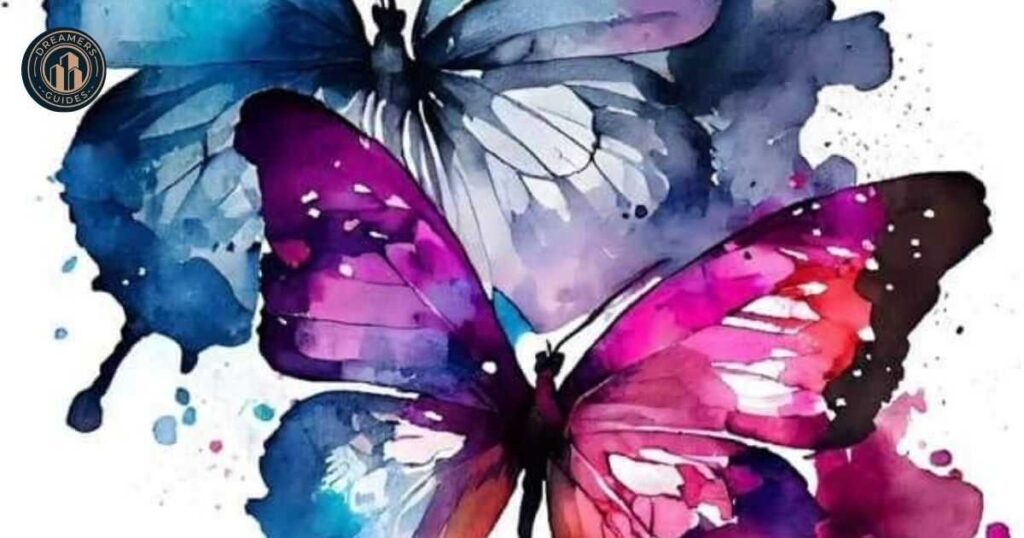
Think about the chrysalis stage a time of complete dissolution before rebirth. Just as a caterpillar completely breaks down inside its cocoon before emerging as a butterfly, humans often go through periods of intense change that reshape their entire being. This natural process teaches us that profound transformation requires patience and trust in the process.
2. Beauty
The stunning visual appeal of butterflies has made them universal symbols of beauty and aesthetics. Their delicate wings, painted with nature’s most vibrant colors, remind us that beauty can be both powerful and gentle. This fleeting beauty makes their presence even more precious.
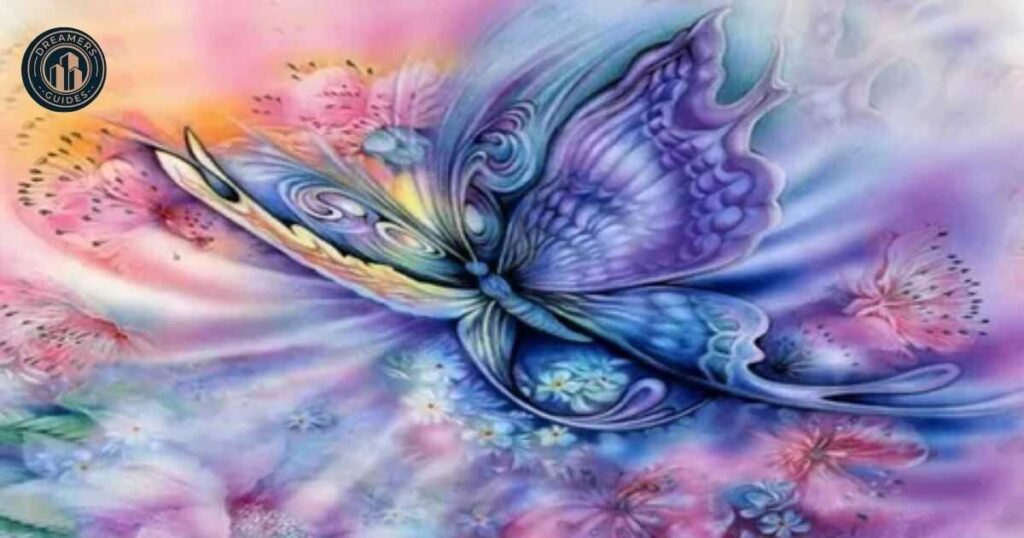
In the world of art and design, butterflies represent the perfect balance between delicacy and vibrancy. Their naturally occurring patterns have inspired countless artists, designers, and creators throughout history. The concept of nature’s harmony becomes visible in their symmetrical wing patterns and graceful flight.
3. Freedom
Butterflies embody freedom and independence in their effortless flight. Unlike many insects that stay close to the ground, butterflies soar freely through the air, representing liberation and release. The famous Gurs camp painting of a butterfly perched on barbed wire powerfully illustrates this symbolism of freedom against oppression.
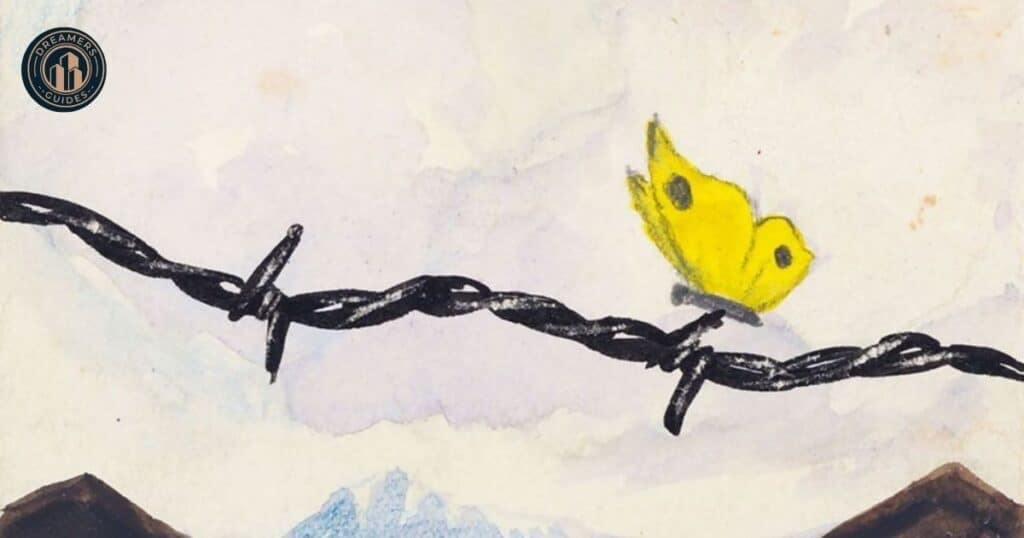
When we observe butterflies floating on the breeze, they remind us of our own capacity for freedom. Their seemingly random yet purposeful movements mirror the human desire to break free from constraints. This aspect of butterfly symbolism in different cultures particularly resonates with societies valuing personal liberty and self-expression.
4. Growth
The concept of spiritual growth intertwines deeply with butterfly symbolism. Each stage of a butterfly’s life cycle parallels human development stages, from the protective cocoon of childhood to the emergence of adult independence. This journey of soul transformation speaks to people across cultural boundaries.
Modern psychology often uses butterfly metaphors to describe personal development phases. The idea that growth requires periods of vulnerability and change, just like the chrysalis stage, helps people understand and accept their own growth processes. This makes butterflies powerful symbols in therapy and personal development work.
Read More About : The Tower Tarot Card: Full Interpretation
5. Transience
The brief lifespan of butterflies teaches us about the beauty of ephemeral existence. Their short but impactful lives demonstrate how the cycle of life and death contains both beauty and purpose. This aspect of butterfly symbolism in different cultures reminds us to appreciate life’s fleeting moments.
The concept of transience appears in various cultural interpretations:
6. Interconnectedness
The famous butterfly effect from chaos theory illustrates how small actions can have far reaching consequences. This scientific concept mirrors ancient wisdom about the interconnected nature of all things. Butterflies, through their role in pollination, demonstrate this connection with nature in practical terms.
In exploring butterfly symbolism in different cultures, we find recurring themes about how individual actions affect the whole. From their role in pollination to their presence in various ecosystems, butterflies remind us that every being plays a crucial part in the greater web of life.
7. Fragility
The delicate nature of butterflies teaches us about fragility and resilience. Their seemingly fragile wings can carry them thousands of miles during migration, showing how strength often exists within apparent weakness. This paradox of nature’s harmony appears consistently in butterfly symbolism in different cultures.
Even the strongest butterflies depend on specific environmental conditions to thrive. This vulnerability to environmental changes makes them perfect symbols for raising awareness about ecological balance. Their sensitivity to environmental changes has made them important indicators of ecosystem health.
8. Hope
Butterflies have become powerful symbols of hope across cultures. Their emergence from the darkness of the chrysalis represents the possibility of positive change. This aspect of butterfly symbolism in different cultures resonates especially during challenging times.
The story of soul transformation through difficulty appears in various cultural narratives:
In Japanese mythology, for instance, butterflies are seen as the embodiment of the human spirit. They symbolize the transience of life and act as messengers between worlds, comforting loved ones by symbolizing a soul’s visitation after death.
This belief fosters a sense of peace and hope for the bereaved, reminding them that the spirit of their loved one remains connected, even if only fleetingly.
Similarly, in Chinese folklore, the Butterfly Lovers tale of Zhu Yingtai and Liang Shanbo speaks to the idea of love and sacrifice, ultimately conveying the hopeful message that true love transcends physical death.
This story continues to inspire those seeking hope and resilience against life’s obstacles, emphasizing the power of love to endure beyond life’s constraints.
In the context of Greek and Roman beliefs, butterflies are closely associated with the soul. The story of Psyche represents the struggle of the human spirit to achieve growth and reach higher states of existence.
Her journey from a mere mortal to an immortal wife of Cupid reflects a cycle of rebirth and transformation. The butterfly’s link to the soul in ancient art, and its portrayal as a delicate creature that can endure, has made it a timeless symbol of hope.
Chaos Theory
Additionally, the butterfly effect, a concept in chaos theory, symbolizes how small actions or events can lead to major changes, sparking optimism that a little hope can trigger profound transformation.
Whether it’s the pollination they carry out as they move from flower to flower or their role as symbolic creatures in mythology and folklore, butterflies remind us that even small acts can create far reaching impacts, giving hope that change is possible even from the smallest efforts.
The story of soul transformation through difficulty appears in various cultural narratives:
| Culture | Hope Story | Symbolic Meaning |
| Chinese | Zhu Yingtai and Liang Shanbo | Love transcending death |
| Japanese | Myth of Akinosuke | Divine intervention |
| Greek | Psyche and Cupid | Immortal love |
| Mexican | Day of the Dead butterflies | Soul reunion |
Read More About : Snake Symbolism Across Cultures and History
9. Love and Passion
The connection between butterflies and love resonates deeply in mythology and folklore. Across cultures, butterflies have come to embody the depth and complexity of romantic relationships, symbolizing not only beauty but also the transformative power of love.
In the Chinese legend of Zhu Yingtai and Liang Shanbo, famously known as “The Butterfly Lovers,” butterflies represent an eternal bond transcending social barriers and even death.
The lovers’ transformation into butterflies after their tragic end conveys the idea of love’s persistence and spiritual rebirth beyond the physical world. This legend continues to inspire modern depictions of love’s enduring strength in art, literature, and wedding traditions.
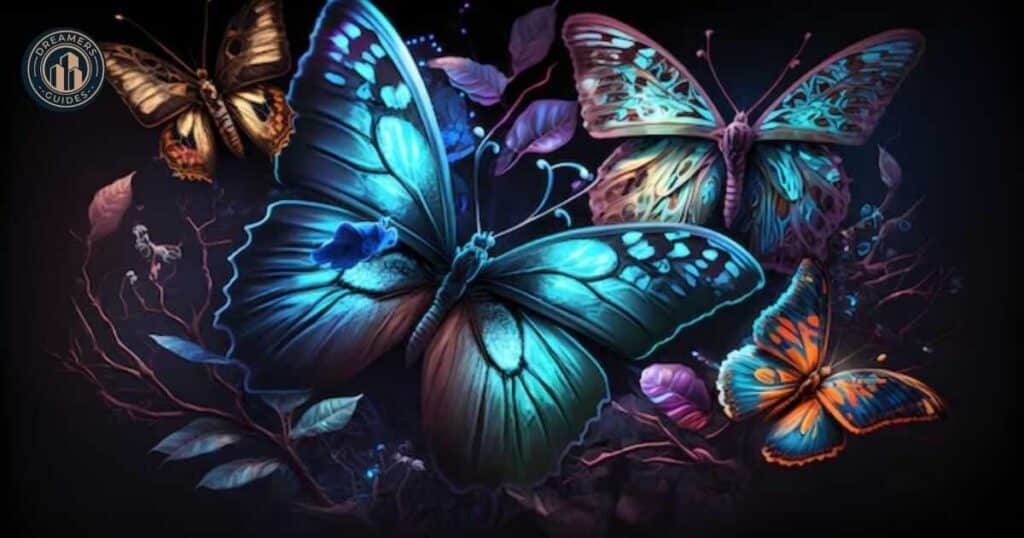
Similarly, in Roman mythology, the story of Psyche and Cupid illustrates love’s potential to endure trials and evolve. Here, Psyche the mortal woman whose name means “soul” or “butterfly” represents the human spirit’s journey toward transformation through passion and hardship.
After facing numerous challenges, Psyche is ultimately rewarded with immortality, uniting with Cupid in an eternal bond that celebrates love’s resilience and spiritual growth.
In many modern cultures, the butterfly remains a popular symbol of romantic love. Jewelry designs often feature butterflies as an emblem of beauty and fragility, capturing the fleeting yet profound nature of love.
Romantic art and wedding decorations also incorporate butterflies to symbolize the graceful evolution of two individuals coming together.
The butterfly’s presence in these expressions reflects the delicate balance between freedom and commitment, a common theme in passionate relationships.
Butterflies in Fashion and Design
The influence of butterflies on fashion and design showcases how symbolism in art evolves across time. Modern designers continue to draw inspiration from these symbolic creatures, incorporating their forms and patterns into everything from haute couture to everyday items.
Contemporary fashion houses often reference the metamorphosis theme in their collections, using butterfly motifs to represent transformation and renewal. This bridges ancient civilizations‘ use of butterfly imagery with modern aesthetic sensibilities.
Importance of Butterflies in Jewelry
Butterfly jewelry carries deep symbolic meaning across cultures. Each piece tells a story of personal growth or transformation, making these designs particularly meaningful as gifts. The popularity of butterfly motifs in jewelry demonstrates how cultural traditions continue to influence modern design.
| Design Element | Symbolic Meaning | Best Occasions |
| Single Butterfly | Personal freedom | Graduation, New beginnings |
| Butterfly Pair | Love and partnership | Weddings, Anniversaries |
| Chrysalis Design | Transformation | Life changes, Recovery |
| Flying Butterfly | Achievement | Professional success |
| Butterfly Garden | Growth and abundance | Birthday, Celebration |
Butterflies Across Boundaries
The way butterfly symbolism in different cultures manifests reveals fascinating patterns in human thought. From East to West, these delicate creatures bridge cultural divides with their universal appeal.
Understanding how different societies interpret butterfly symbolism helps us appreciate both our differences and our shared human experience. Let’s explore some of the most significant cultural interpretations.
Read More About : Mars in Cancer: The Gardener and Homemaker
Butterfly Symbolism in China
The story of the Zhu Yingtai and Liang Shanbo, known as the Butterfly Lovers, stands as China’s most famous butterfly tale. This tragic love story shows how butterfly symbolism in different cultures often connects to themes of eternal love and soul transformation.
The Chinese also see butterflies as symbols of longevity and joy. In traditional Chinese art and design, butterflies often appear alongside other auspicious symbols:
| Symbol Combination | Meaning | Cultural Context |
| Butterfly + Plum Blossom | Love and longevity | Wedding décor |
| Butterfly + Chrysanthemum | Joy in old age | Birthday celebrations |
| Double Butterflies | Marital happiness | Wedding gifts |
| Butterfly + Peony | Wealth and love | Home decoration |
Butterfly Symbolism in Egypt
Ancient Egyptian tomb art features butterflies in fascinating ways. These depictions connect to ideas about the human spirit and soul, showing how butterfly symbolism in different cultures often relates to spiritual beliefs.
The concept of transformation particularly resonated in Egyptian culture, where butterflies represented the soul’s journey through the afterlife. Archaeological evidence shows butterflies painted in tombs dating back thousands of years.
Butterfly Symbolism in Ancient Rome
Roman and Greek beliefs about butterflies center around the famous tale of Psyche and Cupid. This story connects butterflies to concepts of love, the soul, and immortality through divine transformation.
The word “psyche” means both butterfly and soul in ancient Greek, showing how deeply this symbolism penetrated classical culture. This connection influenced art and literature throughout European history.
Butterfly Symbolism in Japanese Mythology
Japanese mythology offers unique perspectives on butterfly symbolism. The Myth of Akinosuke and other Japanese folktales present butterflies as messengers between worlds and symbols of soul visitation.
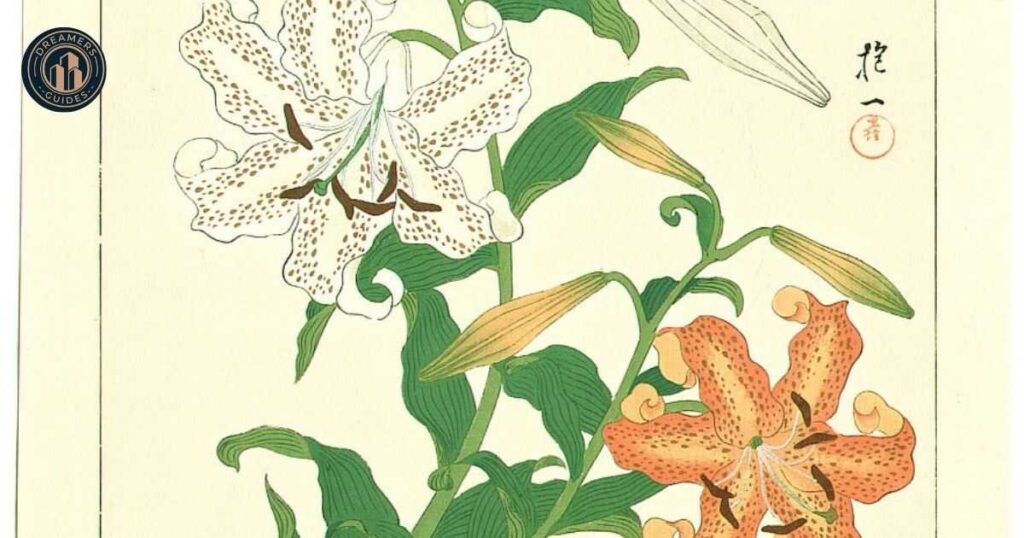
The presence of butterflies in Japanese culture extends beyond mythology into daily life:
| Dream Element | Traditional Interpretation | Modern Psychology View |
| Flying Butterfly | Freedom, liberation | Desire for change |
| Catching Butterfly | Seeking transformation | Control issues |
| Dying Butterfly | End of a phase | Need for acceptance |
| Colorful Butterfly | Emotional expression | Creative potential |
| Multiple Butterflies | Social transformation | Community connection |
Spiritual and Religious Connotations
The spiritual significance of butterflies transcends religious boundaries. Their journey through metamorphosis serves as a powerful metaphor for spiritual transformation and enlightenment.
Many religious traditions incorporate butterfly symbolism into their teachings about soul transformation and spiritual growth. The butterfly’s journey mirrors the spiritual path many seek to follow.
Dream Interpretation
Butterflies in dreams are powerful symbols of personal transformation and growth. For many cultures, dreaming of butterflies represents a signal of upcoming changes in one’s life journey, often tied to a period of rebirth or renewal.
These symbolic creatures in dreams may indicate a shift from old, outgrown ways into new phases of life, much like the metamorphosis from caterpillar to butterfly.
In dream interpretation, butterflies suggest the awakening of the human spirit or soul in response to internal changes. The appearance of a butterfly in a dream could reflect an individual’s desire for freedom and independence, particularly if the butterfly is shown flying freely, symbolizing the release from past constraints.
These dreams can bring messages of hope and resilience, encouraging the dreamer to embrace their personal growth and adaptability to the unknown.
Read More About : Wolf Symbolism Across Cultures and History
Cultural Traditions
Different cultural traditions add unique meanings to butterfly dreams. In Japanese mythology, for example, the butterfly is seen as a visiting soul. Thus, dreaming of a butterfly could symbolize a message from a loved one who has passed away, offering comfort and reassurance to the dreamer.
Similarly, in Chinese folklore, butterflies signify enduring love and sacrifice. A butterfly dream could signal romance or an emotional connection that transcends challenges.
In Western contexts, ancient civilizations such as the Greeks and Romans also perceived butterflies as symbols of the soul and eternity. Roman and Greek beliefs connect butterfly dreams with the concept of life after death, where the butterfly represents the soul’s journey.
Therefore, a butterfly dream may encourage reflection on one’s interconnectedness with loved ones, hinting at the idea that relationships can persist beyond physical boundaries.
A butterfly’s fragility and ephemeral existence also play into dream meanings. Their brief lifespan often reminds the dreamer of the transient nature of life and the importance of appreciating fleeting moments.
Whether signaling spiritual growth, change, or a reminder of life’s beauty and fragility, butterfly dreams are invitations to embrace the path of transformation with a light heart and an open mind.
Read More About : Jupiter in 12th House: In-depth Explanation
Role in Environmental Awareness
Butterflies serve as crucial indicators of environmental health. Their sensitivity to environmental changes makes them perfect symbols for conservation efforts and ecological awareness.
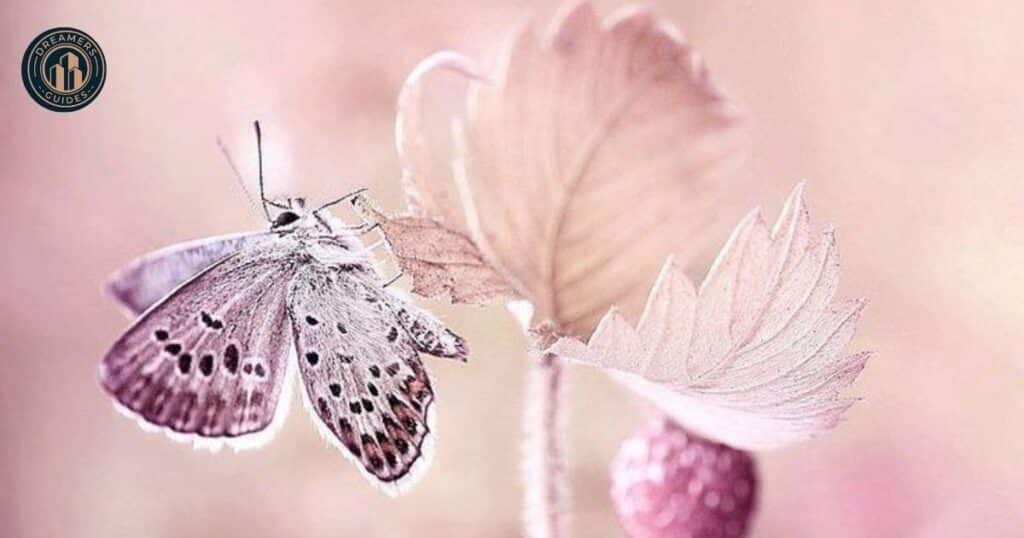
The decline of butterfly populations worldwide has become a powerful symbol of environmental degradation. Conservation efforts often use butterflies to illustrate the importance of protecting natural habitats and maintaining biodiversity.
Conclusion
The rich tapestry of butterfly symbolism in different cultures shows how these remarkable insects continue to inspire and teach us. From ancient myths to modern environmental movements, butterflies remind us of life’s beauty, fragility, and constant potential for transformation.
Their universal appeal transcends cultural boundaries, making them powerful symbols of hope, change, and renewal. As we face modern challenges, the timeless wisdom embedded in butterfly symbolism offers valuable insights for personal growth and global awareness

James Michael
James Michael is the creative force behind Dreamers Guides, dedicated to exploring the rich symbolism and spirituality of diverse cultures. With a passion for uncovering ancient wisdom, He crafts insightful narratives that connect beliefs and foster understanding among readers worldwide.